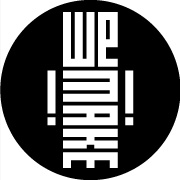#WeMake Stories: Breathing Games and their free software project
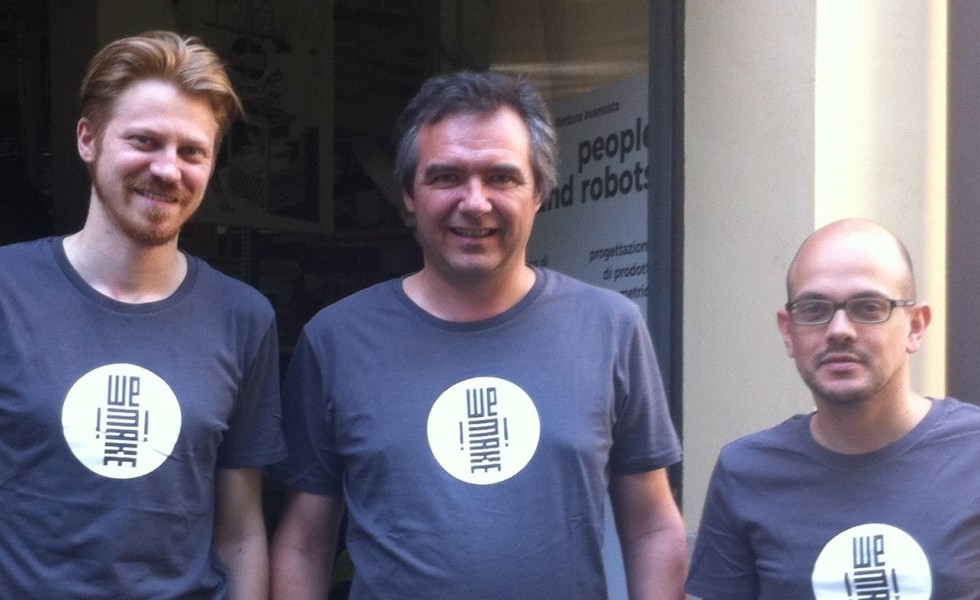
Italian below
Fabio Balli (Montreal) does research on the Right to Health and Commons at Concordia University.
Povilas Jurgaitis (Montreal) is an electronic and electrical engineer.
Bernard Dugas (Geneva) is an electronic and computer systems specialist.
Worldwide, one in five person has a chronic respiratory disease, only one in two patient follows the treatment defined with the caregiver. In this vision, Breathing Games mobilizes people from all walks to co-create digital games, respiratory sensors, data system, and research-creation methods around respiratory health.
How did you meet?
F: We met talking about a project on cystic fibrosis 3 years ago, then the project evolved and then in Montreal we joined a network called Sensorica, an open hardware network. There I met Pov and we had a 3 days event in Switzerland and there we met Bernard.
How did you decide to make Breathing Games?
F: It was a workshop initially (in 2014). The idea was to continue the games we started to create for health, then we worked also on the hardware sensors and different people contributed to the project. I think more than 200 people contributed, some with only some hours some for a month.
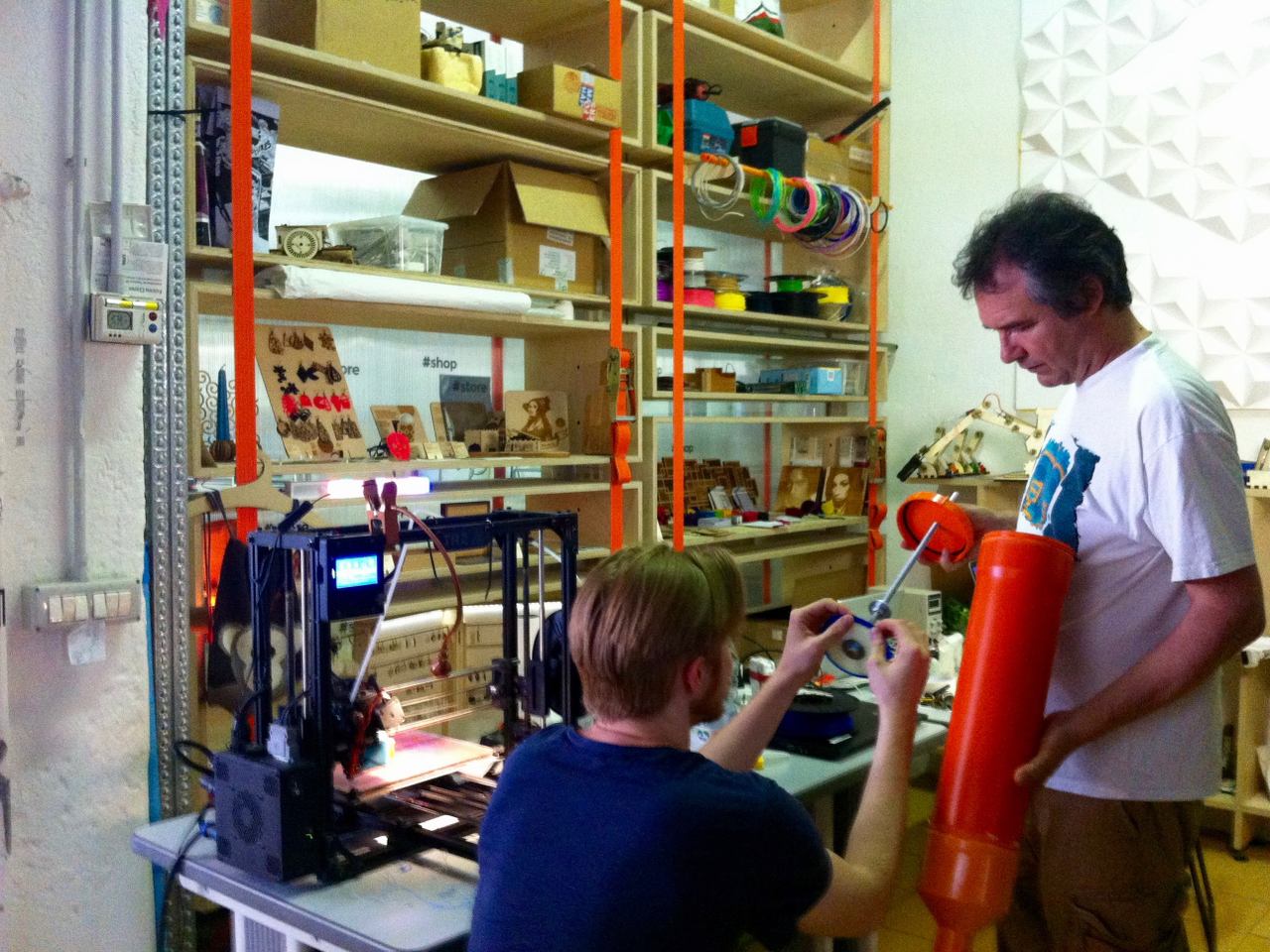
Try to describe the project: it promotes respiratory health in a particular way, doesn’t it?
F: The idea is to have what we call an open access commons, that’s not an organization like a company or a caritative one… We want to create a pool of resources accessible to everyone and that everyone can reuse and reproduce if they respect the idea that their improvement also have to be shared. Let’s say we have 3 levels to the project: one is the games for educational or treatment purpose; then the 2nd level is more like sensors we are creating here at WeMake, to be used as game controllers but also to collect data so that we can inform the people affected or research; the third level is more like donation, we try to organize different event where people can donate and know more about health.
Is it an open source project?
F: I prefer calling it a free software project, because free software is more about the freedom of users, while open is just about technical benefit.
Open is not free!
F: Free is not gratis either: free software can be sold.
P: User has freedom to do whatever he wants with free software; users are not restricted in how they use our stuff. They have to be able to access and modify it in any way. That’s the idea behind Richard Stallman Free Software movement.
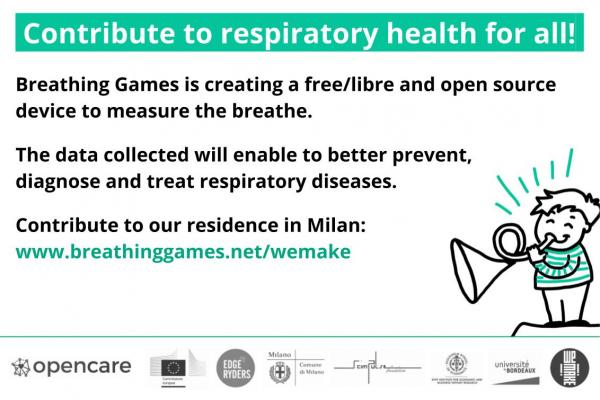
How do you finance the project?
F: Up to now it’s just voluntary donation by people. In the last month we did a lot of funding application, mostly research funds, and we started to have answer, first by Concordia University in Montreal, then by the Canadian Institute of Health Research and the French Hospitals Federation. In the last month we have been working on creating legal entities in Switzerland and Canada to get funds from foundations. Then we had some events to gather funds.
You told me before that the second level, building sensors, is what you’ll be doing here during the Maker In Residence project, so maybe we can discuss about it, not too technical, not too difficult, just to have people understand what you are doing here.
P: Previously we had only one type of prototype measuring pressure, but we need different sensors to measure air flow for example for which we hadn’t a prototype yet, so we hope to make some progress on it and other sensors, we have some electronics to experiment, we want to make some tests to develop a prototype that measures air flow, since in september we have plans to test it in an hospital if we can produce it.
In which way do you think WeMake can help you?
P: We want to use the tool here and the time to experiment with components and electronics to see how they work.
F: I think also we have time to spend together coming from different places we cannot have this meeting face to face too often. This in our project during the MIR.
B: I don’t have to go to do something in different places.
During the Makers in Residence weeks you can concentrate on the project…
B: It’s a sort of monastery here… and it’s in monastery a lot of things were invented in the 12th century… Wind Mills for example and water network for watering the plants in the fields in France… they were out of the secular life, they didn’t need money, they just needed food and just had to work to make things work…
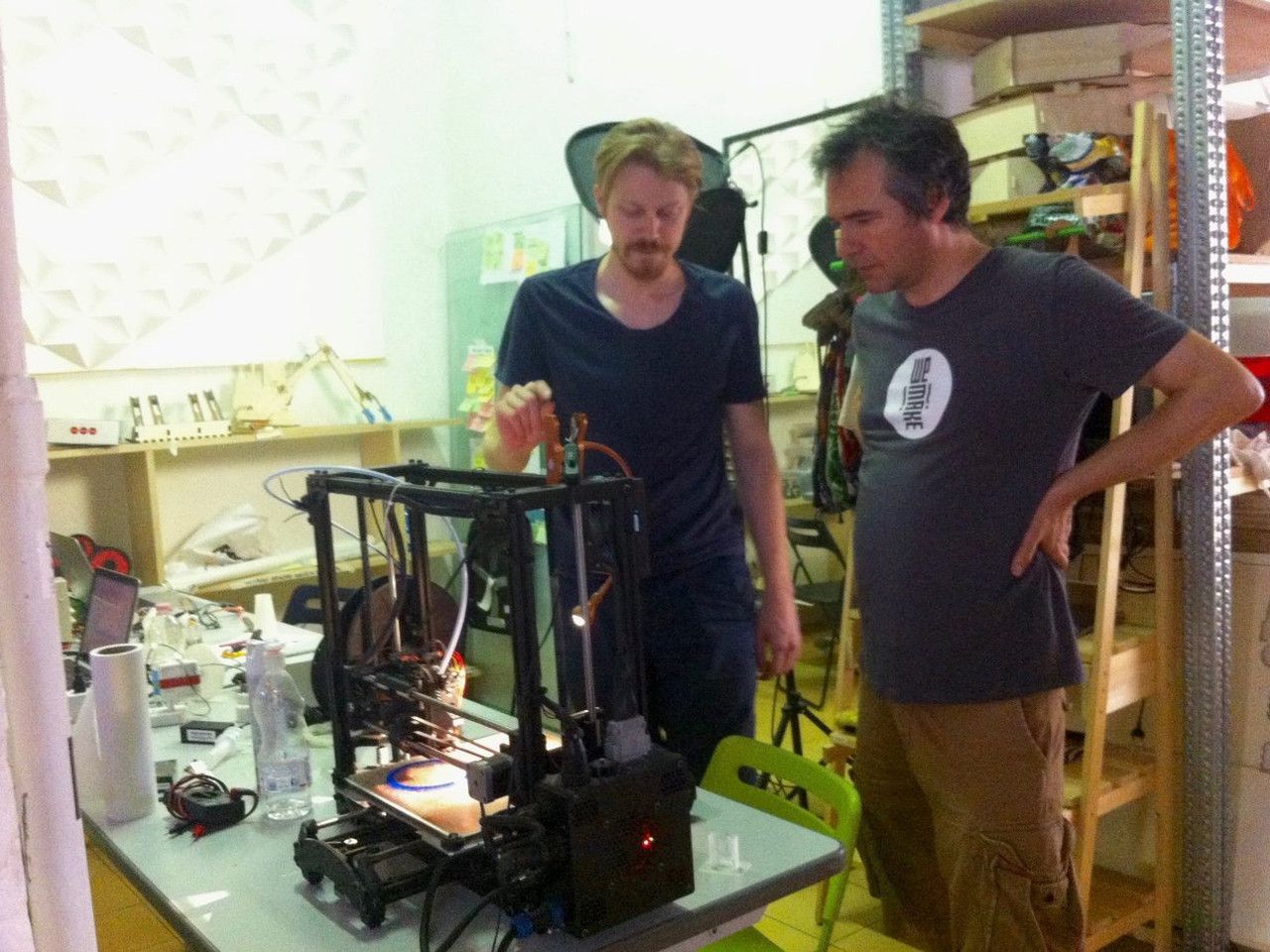
How did you get in touch with opencare?
F: One year ago there was a call to collaborate to an application for a grant from a foundation. We took part in this and got regular emails from Edgeryders in the grant and I saw the announce for this residence… Now at Concordia I’m doing a research about the commons and the goal is to see all contributors take part in building games. Our idea is also to see whether what we create in openaccess/free environment is more efficient than what is created in private enterprises… I think it is because one of the purpose is having people collaborating instead of creating their game and selling it. There were though projects that started games than the group got separated because they had not the same ideas and nobody of them could use the idea of games they started with because it was closed software. I think with Breathing Games even if nobody from the collective continues the work, you always have the code online, the documentation, the articles online, and anybody can go on with the work.
Do you use Creative Commons license?
F: We used CC and GPL license before but few months ago we switched to Peer Production License which was created by Michel Bauwens and the difference is that this license doesn’t enable a free reuse of what we did by an organization who does it for profit. Stallman doesn’t like it since he’s for all freedom, but Bauwens says that we have to protect projects from exploitation.
=====================================================================
Come vi siete incontrati?
F: ci siamo incontrati in un progetto sulla fibrosi cistica 3 anni fa, poi il progetto si è evoluto e a Montreal ci siamo uniti a un network di open hardware chiamato Sensorica. Ho incontrato Pov e poi a un evento di 3 giorni a Ginevra abbiamo incontrato Fabio.
Come avete deciso di cominciare il progetto Breathing Games?
F: Inizialmente era un laboratorio (nel 2014). L’idea era di continuare nella linea di giochi che avevamo creato nell’ambito sanitario, poi ci siamo messi a lavorare anche sui sensori hardware e molte persone hanno contribuito a questo progetto. Penso che in questo progetto ci sono le idee e le proposte di più di 200 persone, alcune che ci hanno dedicato qualche ora altre magari un mese.
Descrivete brevemente il progetto: promuove la salute dell’apparato respiratorio in maniera un po’ particolare no?
F: L’idea è di creare un bene comune open access, non un’organizzazione profit o un’associazione caritatevole… Vogliamo creare un pool di risorse accessibili a tutti e che tutti possano riutilizzare e riprodurre se rispettano l’idea che anche i miglioramenti che introducono devono essere condivisi nello stesso modo. Diciamo che il progetto ha 3 livelli: un primo livello sono i giochi per fini educativi o riabilitativi; un secondo livello è quello dei sensori che stiamo creando qui a WeMake che possono essere usati come game controller ma anche per raccogliere dati da chi usa i giochi o in generale in ambito medico; un terzo livello è quello della condivisione e del finanziamento, in cui cerchiamo di organizzare eventi dove le persone possono donare al progetto e contribuire, oltre a scoprire molte cose sulle questioni sanitarie collegate al progetto.
È un progetto open source?
F: Preferiamo definirlo un progetto free perché il free software accentua l’aspetto della libertà degli utenti mentre l’open source accentua solo i benefici tecnici di tali progetti.
Open non è free!
F: Free non vuol dire gratis… il free software può essere venduto.
P: Gli utenti possono fare quello che vogliono con il free software, non hanno limiti all’uso che ne possono fare. Devono poter accedere e modificare il progetto in ogni suo aspetto. Questa è l’idea di free software che ha inventato e sostenuto dall’inizio Richard Stallman.
Come finanziate il progetto?
F: Fino ad oggi ci siamo basati sulle donazioni delle persone e sui loro contributi. Nell’ultimo mese abbiamo partecipato a parecchi bandi, per la maggior parte bandi per la ricerca, e abbiamo cominciato a raccoglierne i frutti: prima dalla Concordia University, poi il Canadian Institute for Health Research e poi anche dalla French Hospitals Federation. Nell’ultimo mese ci siamo dedicati a creare le entità legali in Svizzera e Canada che ci permetteranno di accedere a questi fondi. Inoltre abbiamo organizzato e partecipato alcuni eventi, come quello di Ginevra, dove abbiamo potuto raccogliere donazioni.
Mi avete parlato del secondo livello dello sviluppo del progetto, quello della costruzione dei sensori, che farete qui durante la Maker In Residence. Proviamo a parlarne in modo non troppo tecnico, non troppo difficile, giusto per far capire alle persone cosa state facendo.
F: Precedentemente avevamo un solo tipo di prototipo di sensore per misurare la pressione, ma per fare quello che pensiamo di fare abbiamo bisogno di altri sensori, fra cui uno per misurare il flusso e la portata di aria, per il quale non c’è ancora un prototipo. Ci lavoriamo qui, oltre a sperimentare un po’ di componenti elettroniche che abbiamo recuperato, e speriamo di poter fare un po’ di test di un prototipo che misuri il flusso d’aria, così che a settembre possiamo utilizzarlo in modo da poter fare un po’ di test in ambito ospedaliero.
In che modo WeMake può aiutarvi?
P: Abbiamo molti tool a disposizione qui che possiamo utilizzare e possiamo dedicare il tempo a sperimentare componenti ed elettronica.
F: Inoltre possiamo passare un po’ di tempo faccia a faccia cosa non sempre facile dato che veniamo da luoghi molto distanti tra di loro.
B: Qui abbiamo tutto a portata di mano.
Durante la MIR potete concentrarvi sul progetto insomma…
B: Beh qui è una specie di monastero… ed è nei monasteri che nel XII secolo sono state inventate molte cose, per esempio sui mulini e sui sistemi di irrigazione… i monaci non dovevano occuparsi delle cose della vita, non avevano bisogno di soldi, solo di qualcosa da mangiare e per il resto potevano concentrarsi sul far funzionare le cose…
Come siete entrati in contatto con opencare?
F: Un anno fa abbiamo visto una call per collaborare nella scrittura di un grant per una fondazione. Ci abbiamo partecipato e a quel punto abbiamo cominciato a ricevere mail regolarmente da Edgeryders. Lì abbiamo visto l’annuncio di questa residency. Poi ho cominciato a programmare giochi e ora ora alla Concordia sto conducendo questa ricerca sui beni comuni. L’idea è assicurarsi che tutti i partecipanti contribuiscano allo sviluppo dei giochi e vedere se quello che creiamo in un contesto open access o free è più efficiente di quello che si crea in contesti privati. Io penso che lo sia, perché il punto è far collaborare tra loro le persone al posto di vederle lavorare ognuna a un suo progetto per poi venderlo. Ci sono progetti che hanno cominciato a fare giochi e poi si sono separati per divergenze finendo per non poter più utilizzare quanto già prodotto visto che era protetto da copyright. Invece anche se nessuno di noi andrà avanti con Breathing Games, il codice, la documentazione e gli articoli saranno tutti online e chiunque potrà continuare il lavoro.
Usate una licenza Creative Commons?
F: All’inizio usavamo la licenza CC o la GPL ma qualche mese fa siamo passati alla Peer Production License creata da Michel Bauwens. La differenza con le altre è che questa licenza non permette a una organizzazione profit di prendere il nostro lavoro e riutlizzarlo. A Stallman non piace, perché vuole la libertà assoluta degli utenti, ma Bauwens dice che alla fine dobbiamo proteggere i progetti dalle speculazioni in qualche modo.
Breathing Games partecipa alla conferenza di opencare del 22 e 23 novembre 2017 a Milano in quanto progetto selezionato nel bando Call for Solutions.
Per partecipare alla conferenza clicca qui!
